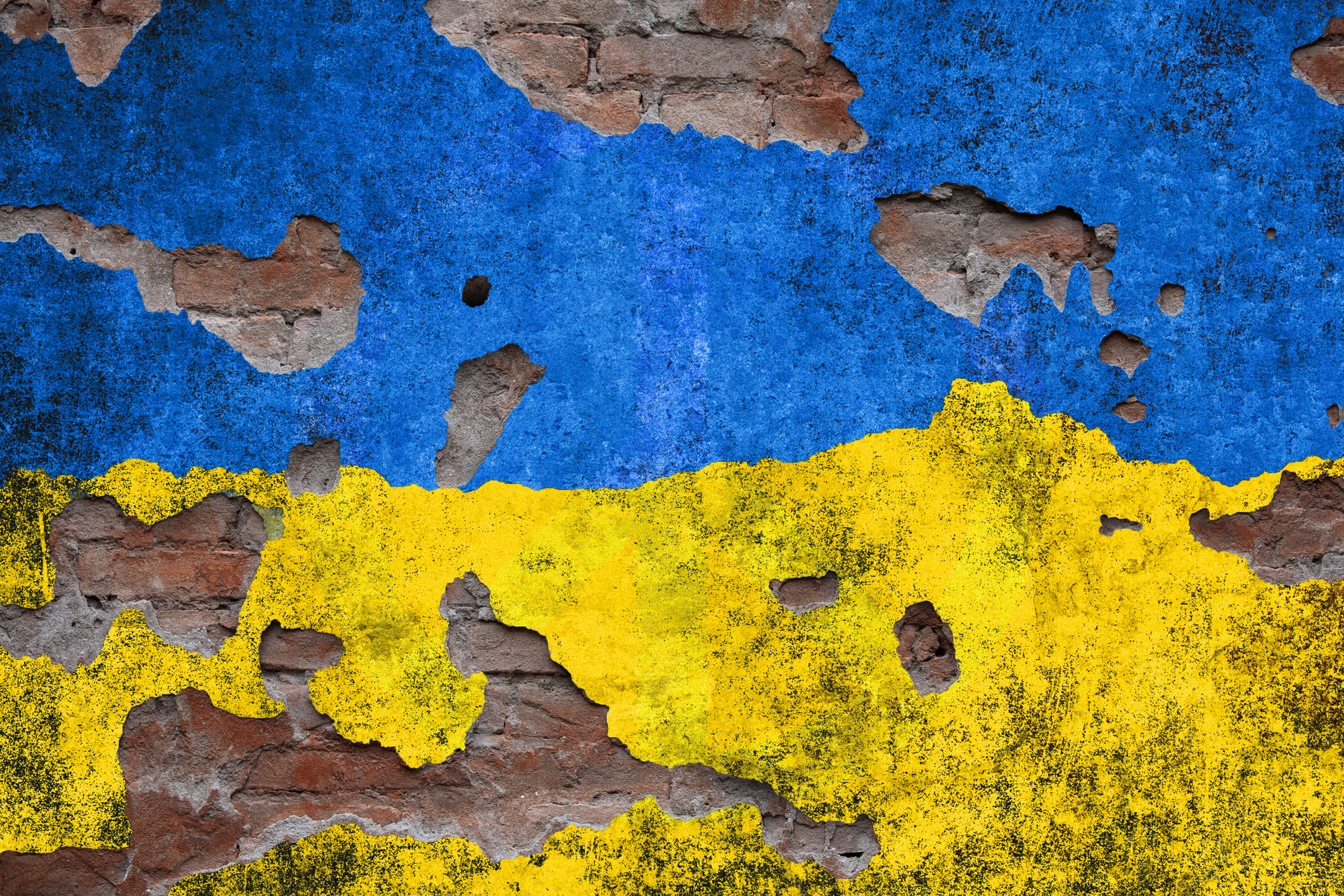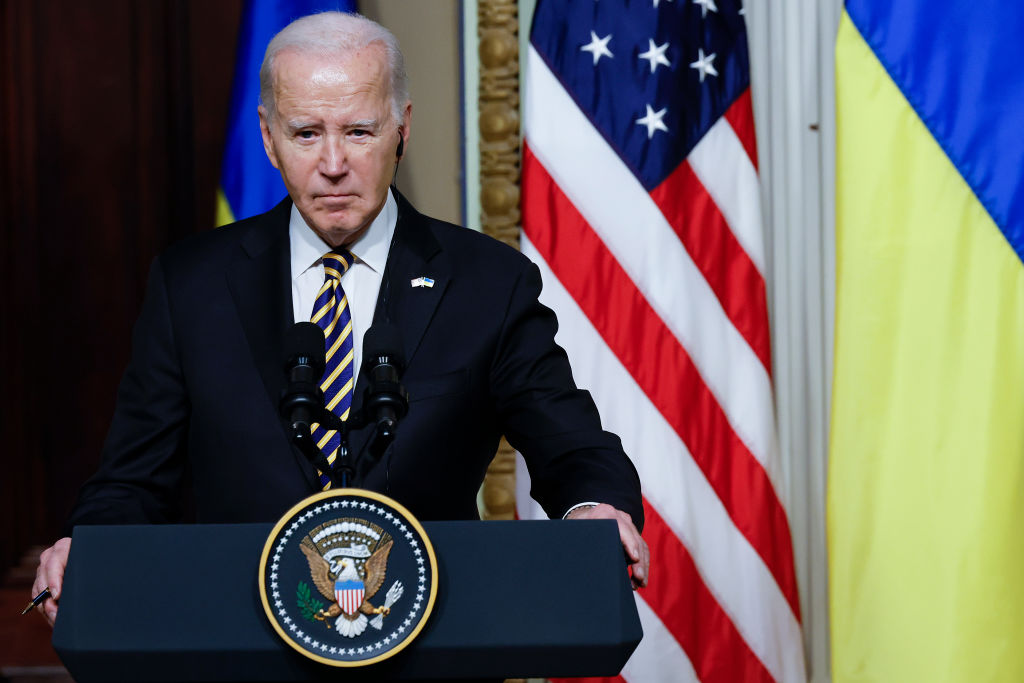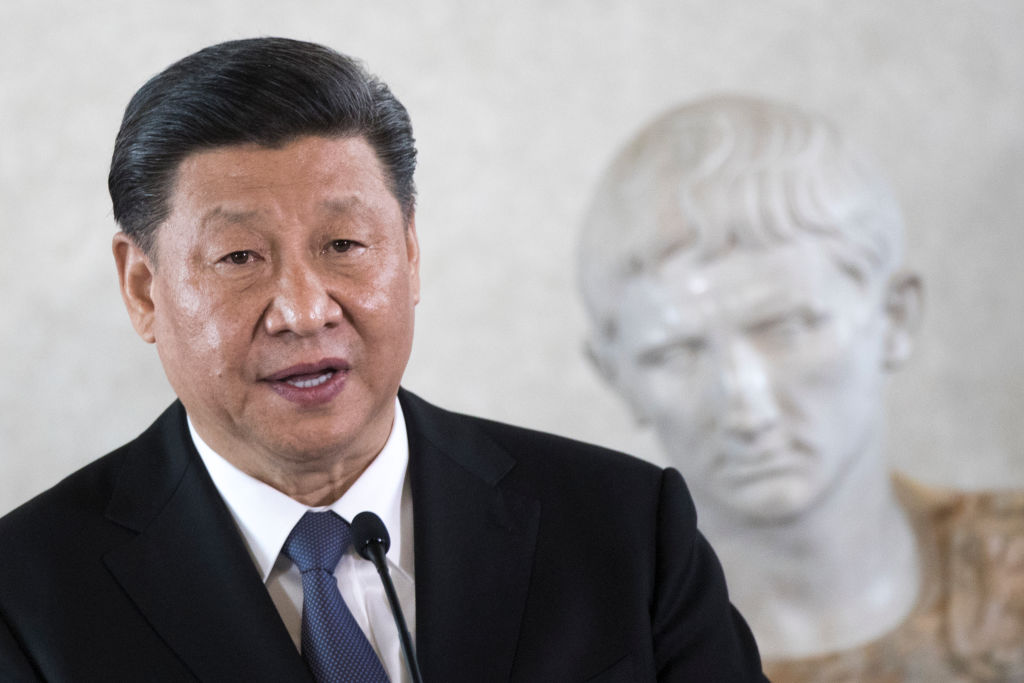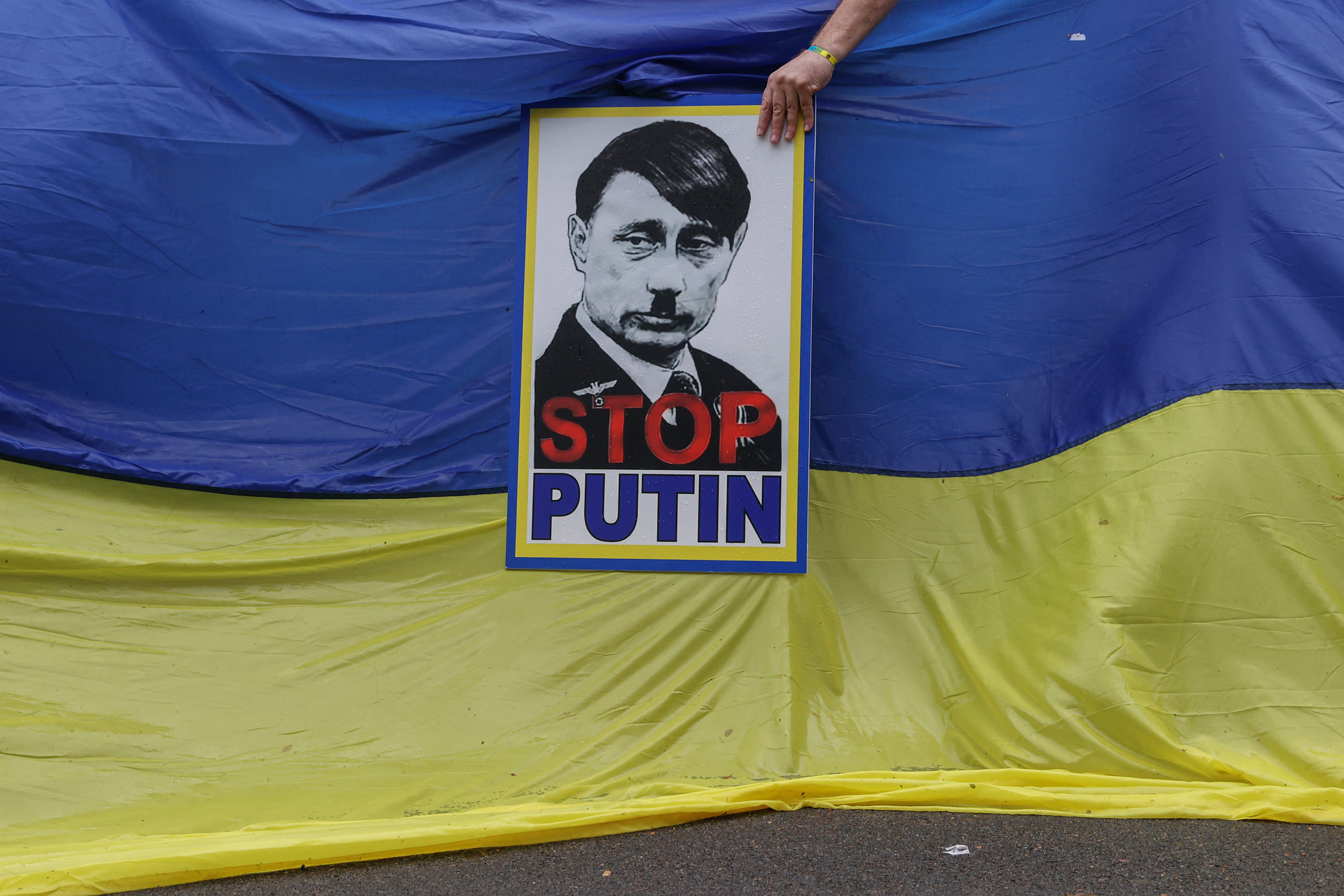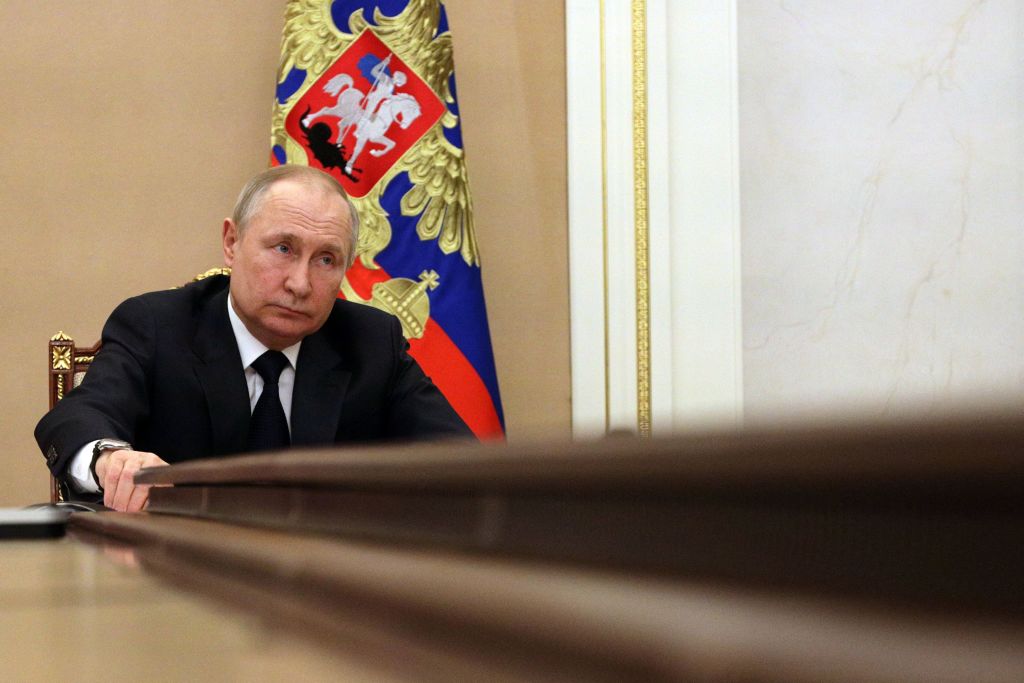Moralism, utopianism, and denunciations of all things Russian are not the answer in the present fight.
Answering the Supporters of American Empire
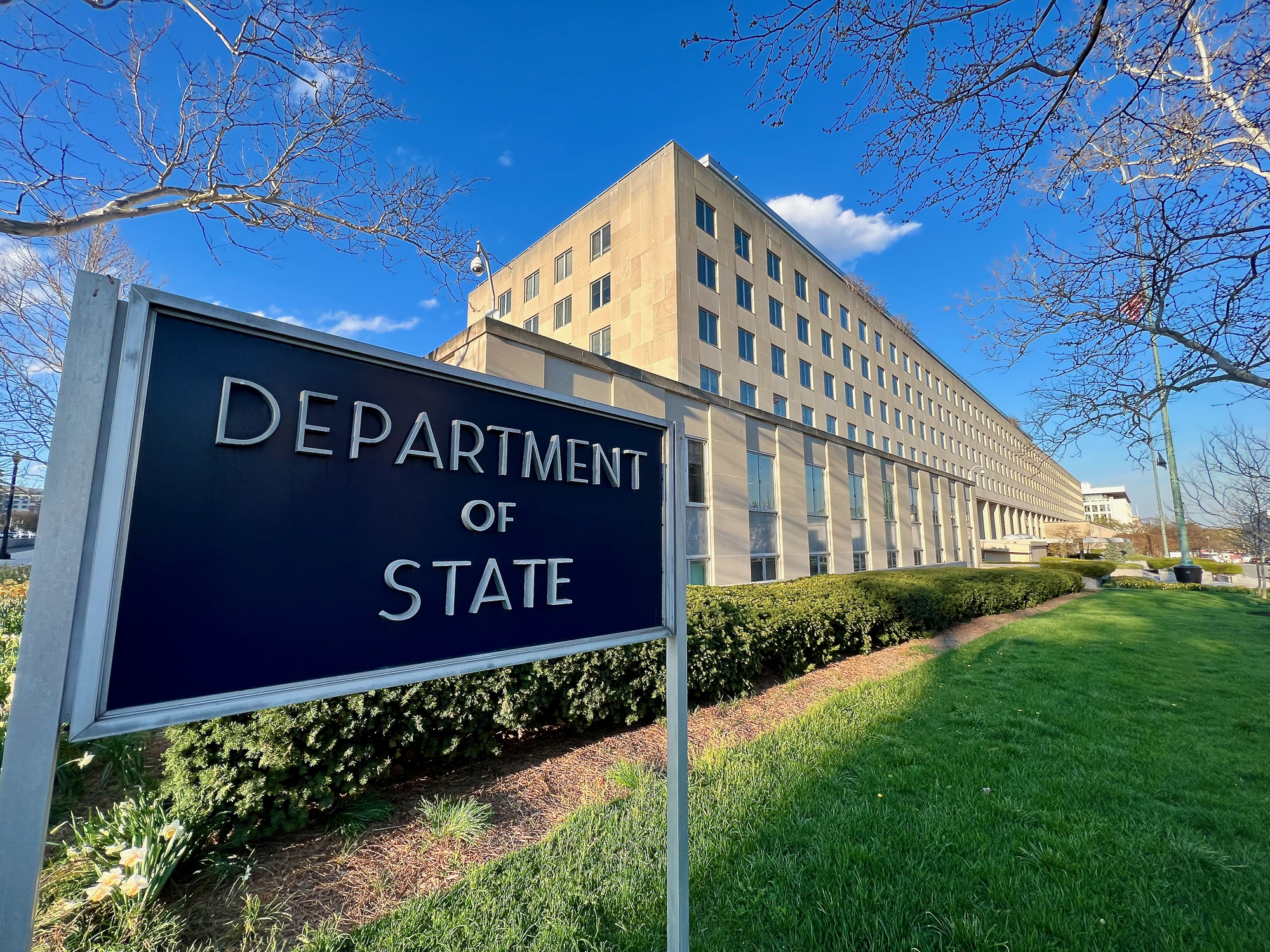
Leading neoconservative arguments for continuing U.S. involvement in Ukraine miss the mark.
For at least the past two years (although in reality much longer), the ideologues of American Empire have derided those who oppose them as wrong, immoral, short-sighted, and useful idiots of Vladimir Putin.
Contrary to this slander, the main thrust of thoughtful criticism of the U.S. government’s position in Ukraine corresponds to the so-called defensive realism school of international relations theory. It is apparent that this view of foreign policy will be vindicated yet again in its predictions of the Ukraine war’s likely outcome, albeit with significant variation on the timeline, as is wont to happen amidst the fog of war. The American establishment has doubled down on its polemical accusations while ramping up efforts to absolve itself of any responsibility for that outcome.
On the heels of the Ukraine Armed Forces’ withdrawal from Avdiivka, a city in Donetsk Oblast, and the increasingly dire state of affairs across the entire line of contact, a steady drip of revisionist articles is being released into the already septic foreign policy media circulatory system. We are to believe that it was actually realists who, through moral cowardice and a love for authoritarianism masquerading as sober analysis, willed this state of affairs into existence, thereby condemning Ukraine to its impending fate.
Unsurprisingly, the most vocal criticism has come from prominent neoconservatives. These proponents of a “conservative internationalism” present their approach to America’s engagement with the world as the true heir to foreign policy realism, which they claim is entirely antithetical to the alleged isolationism of those who refuse to argue for the destruction of the Russian state.
The attack against defensive realism is premised upon the reluctant admission that, yes, total victory for Ukraine is unlikely. And yes, the final outcome will probably look very similar to what adherents to that school of foreign policy have predicted since the outset of the conflict. There will be a negotiated settlement in Ukraine, which will include major territorial concessions. Any alliances subsequently arranged between Western capitals and Kiev will be on limited terms, with the latter having its ability to project power into Russia proper significantly curtailed.
But, so the neoconservative argument goes, such a settlement will only be the result of America refusing to provide enough funding and weaponry to Kiev. Republicans are therefore to blame, with special ire for J.D. Vance, who had the gall to go before the Munich Security Conference and spout an anti-internationalist screed about clearly articulated ends.
Editor-in-chief of National Review Rich Lowry best exemplifies this position. In a recent article, “Why critics of Ukraine aid are wrong—and endangering America,” he states that the type of realism forwarded by Vance is “naïve and unrealistic” and is premised on circular reasoning. Cutting off aid leads to worse battlefield outcomes for Ukraine, which then serves as proof of a hopeless cause and justifies the halt in support.
Lowry’s argument is missing some important context, to say the least. Proponents of unending support reiterate the same talking points about early Ukrainian success in recapturing Russian-held territory and the failed attempt to take Kiev early in the war.
However, Russia has changed both its strategic and operational approach as the West has gradually escalated its level of involvement. Most recently, Ukraine’s Spring counteroffensive failed outright because Russia adopted an effective military strategy that assumes a long war of attrition. The sufficient condition for victory is that Russia will outlast the determination of Kiev’s backers to keep the conflict limping along. Currently, Russian forces are grinding down the Ukrainian resistance and therefore maintain the strategic initiative while placing the burden of escalation on the West.
The recent release of leaked audio of high-ranking German officers discussing the delivery of air-launched Taurus cruise missiles to Ukraine to destroy the Kerch Bridge, which leads from Russia to Crimea, is one way the West could escalate the conflict. European- and U.S.-supplied F-16s attacking targets within Russia is another. NATO Secretary General Jens Stoltenberg hinted at such a move in a recent interview, saying that Kiev has a right to “[strike] legitimate military targets outside Ukraine.” Moscow would undoubtedly retaliate, broadening the scope of its attack against the means by which the West currently provides logistical and operational support for the Ukrainian war effort. The scope of what Russia defines as “support” would likewise also widen.
At that point, the potential for direct confrontation between Russia and NATO would of course be significantly higher. The most enthusiastic—if not the most honest—supporters of the proxy war against Russia know this—and may even welcome it. That is because there is only one factor that can seriously alter the current balance in Ukraine, thus causing Moscow to change its strategic course and increase the possibility of discussing terms amenable to the U.S.-led West.
Lowry’s analysis therefore quietly glosses over the most significant resource in such a war: manpower. Russia has more of it, and an unending flow of funds and weapons will not change that fact. Slowly providing deadlier arms may inflict greater Russian casualties, but Moscow will plan to match any such escalation, as mentioned above. Without the deployment of foreign troops, Russia’s commitment to fight until its strategic imperatives are secured is essentially guaranteed. And even if foreign troops join the fight, it is still unlikely that Russia will back down.
Instead, Lowry contends that giving Ukraine a perpetual supply of the most advanced weaponry would eventually result in the Russian nation becoming physically and mentally exhausted, subsequently causing Moscow to “cut some sort of deal.” Besides once again refusing to engage with the now obvious fact that a better “deal” for Ukraine could have been secured if Kiev had not been forcibly pushed to forgo negotiations and instead bleed itself white pursuing strategically unrealistic aims, this entire line of argument is based on the same faulty premises discussed above.
Reagan era neocons seem determined to believe that the U.S. strategy of funding the Afghan Mujahideen as a proxy against the Soviet army can be crudely pasted on to the war in Ukraine. But a comparison of the two demonstrates the utter absurdity of drawing such a parallel.
For one, Russia is not the tottering USSR. The country’s economy is mobilized to produce the necessary materiel for an indefinite military struggle. Only several days ago, CNN reported that Russia appears to be producing three times more artillery shells—perhaps the single most important type of munition in the current war—than the United States and Europe combined. Even with 15,000 economic sanctions placed on it over the past two years, Russia’s economy has also grown faster in 2023 than all other G7 economies, with the IMF forecasting the same for 2024. The resource-rich nation has entirely reoriented its trade as well, solidifying its position as a leader in alternative multilateral institutions aimed at facilitating the growth and interconnectedness of the “multipolar” world.
Nor is Ukraine Afghanistan. The 5,000-word article that Putin released on the spiritual unity of the eastern Slavic peoples in late 2021, as well as the nearly 45-minute run down of over 1,000 years of Russian history during the Tucker Carlson interview, were not simply for show. Putin believes it, even if pro-Ukrainian sources don’t. And judging by the significant levels of support for the war effort, so does the Russian population.
Of course, this does not include Moscow’s strategic consideration of the conflict. The Russian president articulated this point recently when he reaffirmed how sensitive the war is for his country: “For [the West], it is an improvement of their tactical position, but for us, it is existential, it a matter of life and death.”
Perhaps this is just wartime rhetoric to dissuade further Western support of Ukraine; but Putin’s statements are nonetheless perfectly in line with a rational strategic analysis of the situation, even if one is to discount as irrelevant the fact that the disputed territory happens to be the cradle of Russian civilization. NATO may claim to be a defensive alliance that poses no threat to his country; however, any leader who willingly allows for a geopolitical situation to arise which places its heartland at direct risk of ground invasion would be a failure—especially if the country in question has been invaded continuously over its history, with enemy forces passing directly through the exact region currently being fought over. And this says nothing of the multiple U.S.-supported color revolutions on Russia’s borders.
Expanding the Liberal Democratic Empire
Most importantly of all, however, is the fact that America is not the America that it was at the time of the Soviet military intervention in Afghanistan. This leads to the second assumption in the arguments for intervention: the belief that the U.S. not only has an obligation to support every nation that is fighting for “Democracy,” but that a state of perpetual war is actually a positive good.
In other words, maintaining and enlarging the liberal democratic empire is not simply a means of better securing American national interests—it is the American national interest.
AEI Fellow Kyle Balzer effectively espouses this viewpoint in an article released several days before Lowry’s. Balzer joins the latter in attacking the “profoundly flawed narrative” of defensive realists. He writes that this narrative falsely purports that post-Cold War U.S. foreign policy “sold out the national interest to export democracy abroad [when it instead should have] prioritized American citizens over U.S. liberal hegemony and its ‘free-riding’ allies.”
Balzer claims the legacy of Reagan as proof that exporting liberal democracy is indeed in the U.S.’s national interest since ostensibly supporting regimes abroad helped lead to the collapse of the Soviet Union. Yet the attempt to equate the geopolitical interests of Russia with the spread of communist revolution implies that it is really America that at present stands as a reflection of the USSR. As soon as the Kremlin stopped being amenable to the spread of the political and economic interests of the liberal democratic order—i.e., Western social policy, the influx of NGOs, and non-profits promoting “civil society,” as well as the economic pillaging of the former superpower under the auspices of “free enterprise”—the U.S. therefore had no other option but to go on treating Russia as an adversary, the same as the Soviets.
This exemplifies one of the central points of divergence between “conservative internationalism” and defensive realism. Both accept that the post-WWII U.S. framework was a tool of constraining a Marxist hegemon bent on spreading its ideology to every country of the world, in keeping with the view promoted by men like George F. Kennan (one of the primary architects of that defensive posture, as well as a noted opponent to NATO expansion). However, whereas the latter school of thought understands that framework as the means to a fixed and limited end—namely, containing the spread of communism in order to defend a specific way of life—the proponents of the former hold it to be an ideological vehicle for the transformation of international relations in accordance with promulgating their own respective conception of political and social liberation. The dissolution of the USSR was but one more step on the path to liberal democracy’s own end of history.
Lowry seems to agree with this analysis in his treatment of Russia as a “civilizational enemy” of the West. Hence his inability to understand “those on the right” who reject such reasoning. Why would those “who, in other contexts, are fierce about the need to defend Western civilization [be] unenthusiastic about a core institution of the modern West—namely NATO—and feel little urgency about checking the aggression of a country that is an avowed and longtime civilizational adversary of the West”?
In fact, this is perhaps the major divergence between the “conservative internationalism” of the coastal bastion old guard and the America First, defensive realism that Donald Trump is believed (hoped, even) to stand for.
The imperial order in service of which America is fighting against Russia is not Western civilization—if anything, it is the enemy of Western civilization. This by no means equates to a championing of Russian civilization, nor a desire to see Ukraine crushed. Rather, the incompetency of American Empire abroad should force some much-needed self-reflection at home, thus shifting the national focus toward addressing our deteriorating domestic situation. Incumbent to this would be a return to a more limited foreign policy that does not needlessly expend the nation’s blood and treasure in service of ideological ends. Only then can America reorient its defense posture toward specific geopolitical priorities, devoting its limited resources to well-defined and limited ends that are in accord with its national interests—all of which by definition must be judged in relation to their effect on domestic health.
This is not the way that the foreign policy establishment thinks about things. They will always come down on the side of more war and greater involvement—their entire worldview is predicated on it. Their reasoning is likewise perfectly logical: they are the realists, if the first principles of that realism assume the maintenance and spread of empire to be equated with the national interest.
But even these pundits must sense that it is really the United States that eerily resembles the USSR of the 1980s. Life is tangibly getting worse, and our government has become an oligarchic kleptocracy in which political power is mere rent-seeking. All the while, we are nonetheless reassured that our deteriorating country is indeed righteous due to our purported commitment to higher ideals. In the (rather amazingly) unironic words of Jon Stewart, Americans must be thankful for their graffiti-covered, feces-riddled, crime-stricken subways because that is simply “the price of freedom.”
The need for the worldwide triumph of democracy against backwards traditionalism may be enough for the most ideologically minded. There are plenty of houses in upper-middle class suburban neighborhoods that proudly display Ukraine flags, usually right alongside their “We Believe In [various liberal platitudes]” lawn signs. But it is much harder to believe that the narrative will hold among the increasing number of Americans experiencing a steady deterioration in their quality of life.
The American Mind presents a range of perspectives. Views are writers’ own and do not necessarily represent those of The Claremont Institute.
The American Mind is a publication of the Claremont Institute, a non-profit 501(c)(3) organization, dedicated to restoring the principles of the American Founding to their rightful, preeminent authority in our national life. Interested in supporting our work? Gifts to the Claremont Institute are tax-deductible.
The case for funding endless war in Ukraine is bankrupt.
The U.S. should double down on its support of Israel.
Taiwan, Xi Jinping, and America’s year of danger
There is no moral equivalence between Ukraine and Russia, but neither country is Nazi Germany.
Time is a weapon of war.

